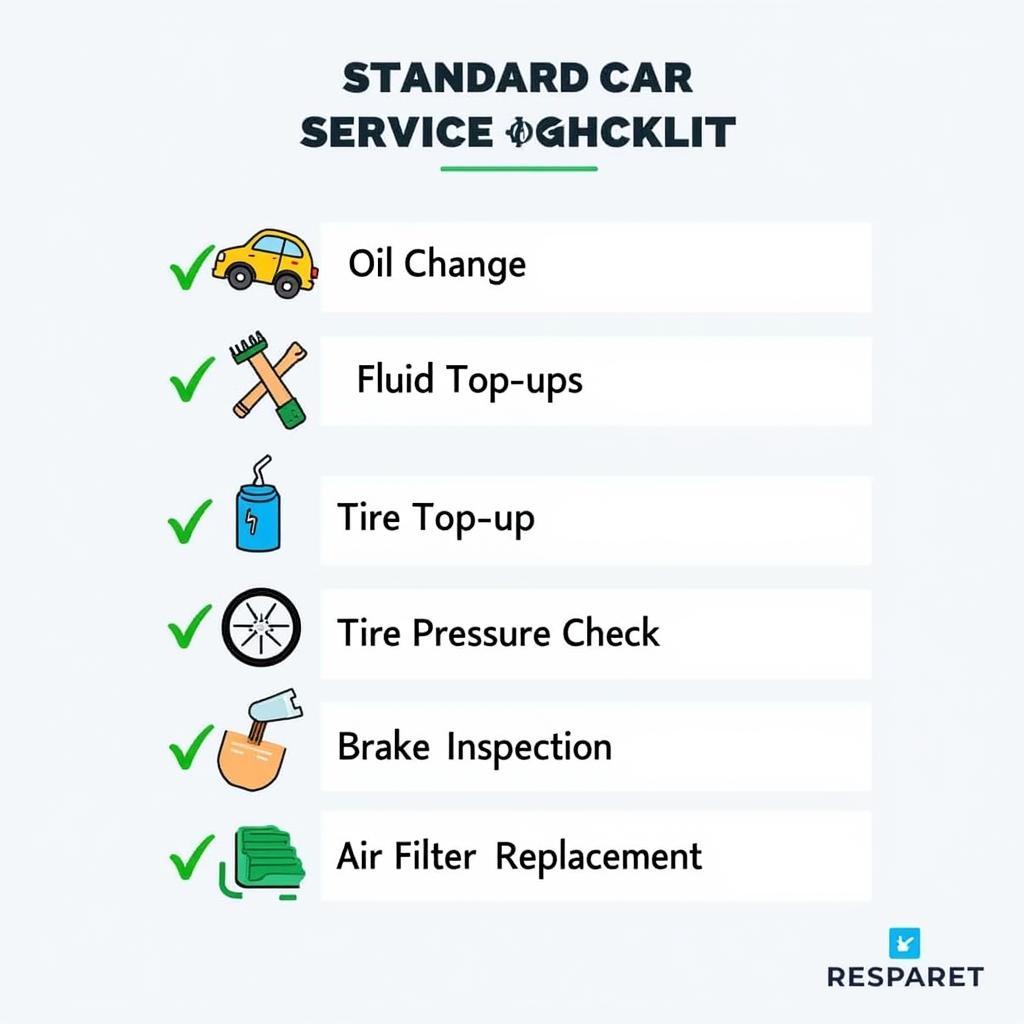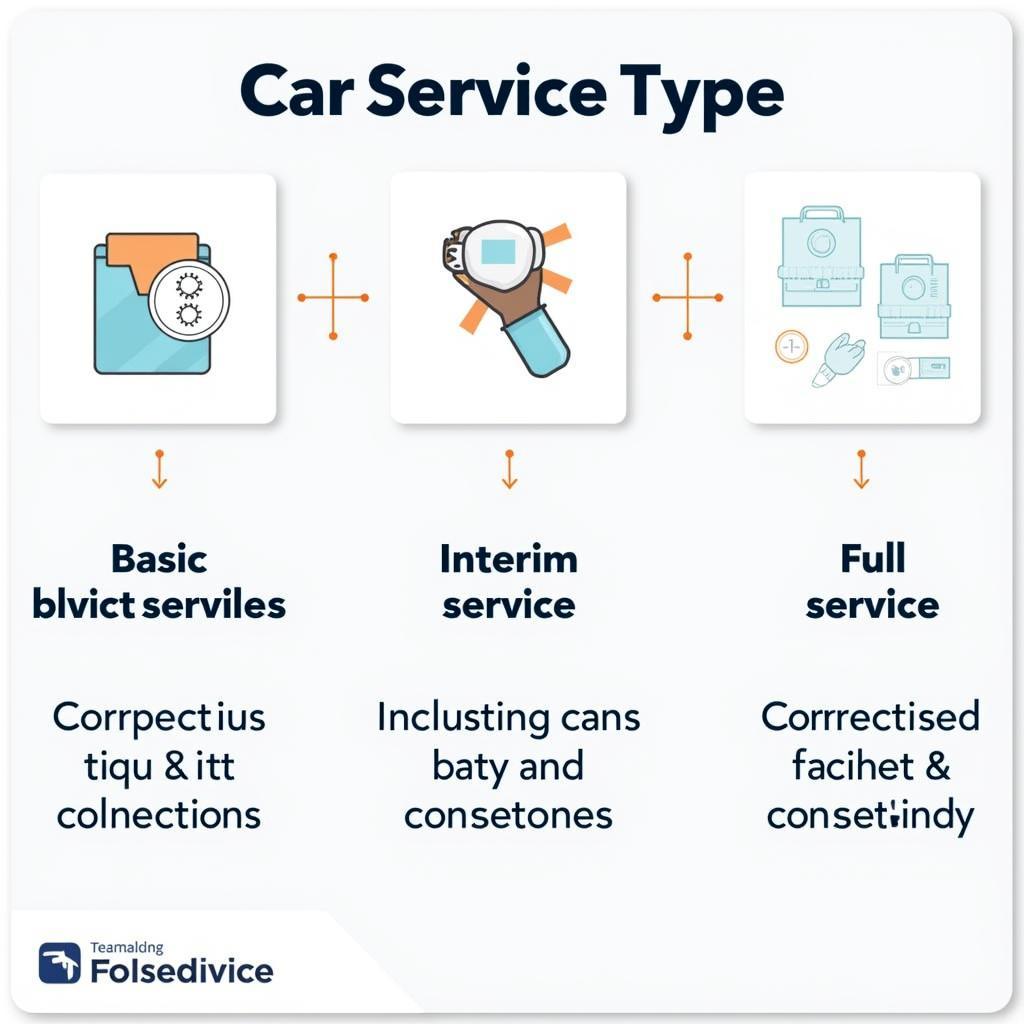What is Servicing a Car?
Car servicing is the regular maintenance performed on a vehicle to ensure it runs smoothly, safely, and efficiently. It involves a series of checks, adjustments, and replacements of parts that wear out over time. Understanding what servicing a car entails is crucial for every car owner.
Regular car servicing is essential for maintaining the health of your vehicle. It goes beyond simply changing the oil and involves a comprehensive check-up of various components. This proactive approach not only helps prevent costly repairs down the road but also ensures your safety on the road. How to save money on car servicing can help you maintain your vehicle without breaking the bank.
Why is Car Servicing Important?
Car servicing offers a plethora of benefits, ranging from safety to cost savings. Regular maintenance can identify potential problems early on, preventing them from developing into major, expensive repairs. A well-serviced car is also more fuel-efficient, saving you money at the pump. Furthermore, routine servicing maintains the value of your vehicle, making it more desirable should you decide to sell it.
What Does a Car Service Include?
A car service typically involves a series of checks and procedures based on the manufacturer’s recommendations. These checks can include anything from examining fluid levels (oil, coolant, brake fluid) to inspecting brakes, tires, and suspension components. What do mechanics do when servicing a car offers a detailed breakdown of the mechanic’s role during a service.
 Car Service Checklist
Car Service Checklist
What Happens During a Car Service?
During a typical car service, a qualified mechanic will follow a specific checklist to ensure all essential components are inspected and maintained. This includes changing the engine oil and filter, checking and topping up other fluids, inspecting brakes and tires, and assessing the overall condition of the vehicle. The specific tasks performed may vary depending on the vehicle’s make, model, and mileage. Knowing what is done when servicing a car will give you a clearer picture of the process.
How Often Should I Service My Car?
The frequency of car servicing depends on several factors, including the vehicle’s age, mileage, and driving conditions. Most manufacturers recommend servicing every 6,000-12,000 miles or every 6-12 months, whichever comes first. However, if you frequently drive in harsh conditions, such as extreme temperatures or heavy traffic, more frequent servicing may be necessary. Is it worth servicing your car explores the value and benefits of regular car maintenance.
Does Servicing a Car Improve MPG?
Regular servicing can indeed improve fuel economy. By ensuring the engine is running efficiently and all components are in good working order, your car will use fuel more effectively. Does servicing car improve mpg discusses the relationship between car servicing and fuel efficiency in detail.
What are the Different Types of Car Services?
There are several types of car services, each designed to address specific maintenance needs. These can range from a basic oil change and tire rotation to more comprehensive services that include thorough inspections and replacements of various components. Understanding the different types of car services can help you choose the right one for your vehicle’s needs.
 Different Types of Car Services
Different Types of Car Services
Conclusion
In conclusion, car servicing is a vital aspect of car ownership, contributing to safety, performance, and longevity. By understanding what servicing a car entails and adhering to a regular maintenance schedule, you can ensure your vehicle remains in optimal condition for years to come. Remember to consult your owner’s manual for specific recommendations for your car model.
FAQ
- What is the difference between an interim and a full service? An interim service is a less comprehensive check-up typically recommended every 6 months or 6,000 miles. A full service is more extensive and usually performed annually or every 12,000 miles.
- How much does a car service cost? The cost varies depending on the type of service, the vehicle’s make and model, and the location.
- Can I service my car myself? While some basic maintenance tasks can be performed at home, it’s generally recommended to have your car serviced by a qualified mechanic.
- What happens if I skip a car service? Skipping services can lead to increased wear and tear, reduced fuel efficiency, and potentially costly repairs down the road.
- How do I find a reputable car service center? Look for certifications, online reviews, and recommendations from trusted sources.
- What should I check before taking my car for a service? Check your owner’s manual for recommended service intervals and any specific instructions.
- What paperwork should I receive after a car service? You should receive a detailed invoice outlining the work performed and any parts replaced.
Situations When You Should Get Your Car Serviced
- Unusual noises: Any new or unusual noises coming from your car, like grinding, squeaking, or knocking, could indicate a problem that needs attention.
- Warning lights: If any warning lights appear on your dashboard, it’s essential to get your car checked as soon as possible.
- Fluid leaks: Check for any leaks under your car. Different colored fluids can indicate different problems.
- Reduced performance: If your car isn’t accelerating, braking, or handling as well as it used to, it might be time for a service.
- Mileage or time-based service: Follow the manufacturer’s recommended service intervals for mileage or time, even if your car seems to be running fine.
Other Helpful Resources
For more information on car servicing, you might find the following articles helpful:
- How to save money on car servicing
- What do mechanics do when servicing a car?
- Is it worth servicing your car?
- What is done when servicing a car?
- Does servicing car improve MPG?
Need assistance? Contact us via WhatsApp: +1(641)206-8880 or Email: [email protected]. Our customer service team is available 24/7.

